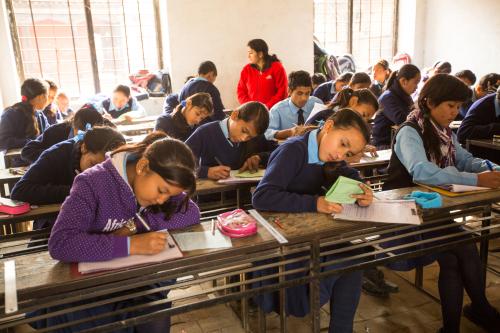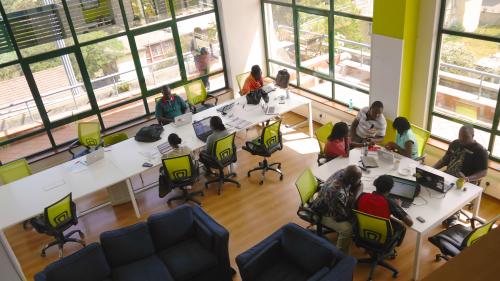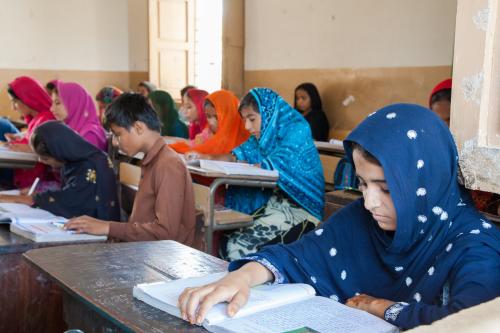Access to education is directly connected to the general well-being, social-emotional learning (SEL), and mental health of adolescents. Many adolescent girls in Nepal, however, appear to be left out of this “virtuous” cycle, unable to find space in school to meaningfully develop a sense of relatedness, autonomy, and competency. More than 8 out of 10 adolescent girls who leave school report doing so because of the emotional strain of the sociocultural challenges that come from living at the intersection of poverty and gendered social norms (USAID, 2017). Female teachers have a critical role to play in gender-transformative SEL that could support adolescent girls navigating inequities in their communities, yet for years Nepali teachers have reported a lack of SEL skills and preparation needed to play this role for their students.
Grappling with similar challenging contexts, female teachers themselves report feeling out of place and disconnected, with a diminished sense of agency, and having less competence to manage their own social-emotional needs. As the Nepali government seeks to prioritize both gender equity and SEL, how can policy and practice better support female teachers to promote adolescent girls’ transformative SEL needs?
This policy brief presents findings from mixed-method research conducted in seven schools and two residential learning centers from three districts (Kathmandu, Lalitpur, and Kavrepalanchowk) of Bagmati province. It seeks to understand the socio-emotional needs of adolescent girls in Nepal, the role of female teachers in addressing those needs, and the support teachers themselves are (or are not) receiving to play this role. It also provides policy recommendations to aid female secondary school teachers in meeting their social-emotional needs in order to ensure their support for their adolescent girl students.
Local governments can play a pivotal goal in developing a shared vision and plan to promote transformative SEL by bringing in multiple stakeholders to build commitment and coordinated efforts. Given the low sense of agency expressed by female teachers, it is critical that they develop confidence in their values and belief systems and explore innovative ideas to improve their pedagogical practices. In order to ensure gender equity in education in Nepal, female teachers must be engaged, equipped, and enabled to reach the students who need it most.






